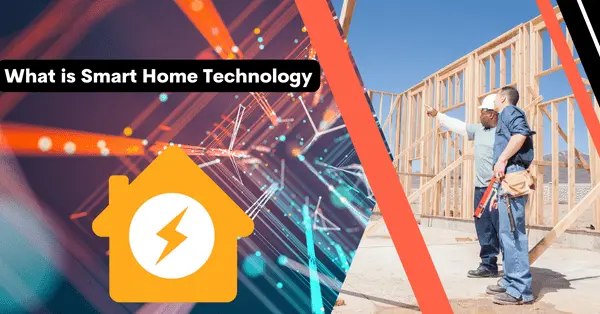Hook: From sci-fi movies to your own living room, smart home technology has made it possible to live a futuristic life. Imagine controlling everything in your home with just a few taps on your smartphone – that’s what smart home technology promises. But what exactly is smart home technology? Let’s find out.
Introduction:
Smart home technology refers to the use of various internet-connected devices and gadgets that can be controlled remotely to automate and optimize various functions within a home. From lighting and temperature control to security and entertainment systems, these devices allow you to manage your home with just a few taps on your smartphone.
The technology behind smart homes is continually evolving and advancing, and it has become increasingly accessible and affordable to homeowners. With the internet of things (IoT) being integrated into most household appliances, it is now possible to connect everything in your home to one centralized system that you can control with ease.
The Components of a Smart Home
A smart home is made up of various components that work together to provide a seamless user experience. These components include smart devices such as smart thermostats, smart locks, smart lighting, and smart appliances.
Smart Thermostats:
Smart thermostats allow you to control your home’s heating and cooling remotely. You can set your preferred temperature through an app on your smartphone, and the thermostat will adjust the temperature accordingly. Some smart thermostats even learn your temperature preferences and automatically adjust the temperature based on your schedule.
Smart Locks:
Smart locks allow you to remotely lock and unlock your doors using your smartphone. This eliminates the need for physical keys and allows you to grant access to guests without having to be physically present.
Smart Lighting:
Smart lighting allows you to control the lights in your home remotely. You can turn lights on and off, dim them, or even change their color using an app on your smartphone.
Smart Appliances:
Smart appliances include anything from refrigerators to coffee makers that can be controlled remotely. You can turn on your coffee maker in the morning while you’re still in bed or preheat your oven on your way home from work.
Advantages of Smart Home Technology
Smart home technology offers several benefits to homeowners, including:
Convenience:
One of the biggest advantages of smart home technology is convenience. You can control various aspects of your home using just your smartphone, making it easier to manage your home from anywhere.
Energy Efficiency:
Smart home devices such as smart thermostats and smart lighting can help you save energy by automatically adjusting temperature and lighting based on your usage patterns.
Security:
Smart home technology can enhance your home security by allowing you to monitor your home remotely using smart cameras and sensors. You can also receive notifications on your smartphone if anything suspicious is detected.
Challenges of Smart Home Technology
While smart home technology offers several benefits, it also comes with a few challenges, including:
Cost:
Smart home devices can be costly, and setting up a smart home can be an expensive investment.
Compatibility:
Not all smart home devices are compatible with each other. Before investing in smart home technology, it’s essential to ensure that the devices you choose are compatible with each other.
Reliability:
Smart home devices rely on an internet connection to function, and they may be subject to outages or connectivity issues. This can be a significant problem, especially if you rely on smart home technology for your home security.
Conclusion:
Smart home technology is the future of home automation, and it offers several benefits to homeowners, including convenience, energy efficiency, and enhanced security. While there are a few challenges to consider, the advantages of smart home technology far outweigh the challenges. With the continued advancement of technology, smart homes are becoming increasingly accessible and affordable, making it easier for homeowners to automate their homes and live a futuristic life.
